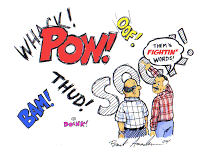
I’ve got something stuck in my craw. And ironically, the song that has been going around and around in my head for the past two days is “Pompeii” by Bastille. Specifically, the following lyrics:
Yeah, I’ve been here before. And, yeah, I’m asking myself how I’m going to be positive and forward-thinking about all of it. Bubba is on board, as are several other folks. We all agree the situation is untenable and something has to change, but the wheels are moving very slowly and if history is any indication, they will stop the vehicle well short of a solution. Several times in the past week I have noticed my jaw set, my breathing shallow, my thoughts rotating in the same old pattern, wearing a path in my brain. While we were making dinner together on Sunday night, I told Bubba, “I’m trying really hard not to get emotionally tied to a specific outcome.”
“Why not?” he stopped what he was doing and turned to me. “I think you SHOULD be.”
I was surprised. He is usually the guy who knows exactly what his boundaries are and how to engage with things he can control and disengage from things he can’t. He is always cautioning me that I’ll make myself crazy if I get too connected to one particular scenario in my mind. His reaction this time only served as a reminder of how long this has gone on without any resolution, that he is just as frustrated as I am that we have acted in all the ways we know how with mindfulness and honesty and concern to no avail.
And yet, I am making myself crazy. His passion and the passion of other folks who have heretofore been quiet and complacent is only serving to reignite my commitment to sparking change. While it feels good to know that I’m not alone, that something is really wrong here, ultimately I have no say in whether things change, and I’m not willing to quit being part of the institution that so desperately needs to change. The person who has the power is a dear friend of mine and I can’t understand why he won’t do what needs to be done, but I can’t force him to do it. I have my suspicions that he is acting (or not acting) out of fear, and my intuition about these things is generally pretty clear. I know what a powerful motivator fear is and I truly understand why he would feel that way. I also have to acknowledge that, despite assurances that the wheels are turning, my faith is quickly eroding.
This lack of power to effect important change in someone else’s life is definitely a theme in my world right now. I had to laugh this morning as it occurred to me that perhaps this is a training ground for dealing with my girls and the life choices they will make without (or despite) input from me or Bubba. Right now, my boundaries are nearly nonexistent and I’m struggling to imagine what they might look like. I am certainly in need of some sort of buffer as I figure out how to be involved with the parts of this organization that are doing amazing work without feeding the part that is toxic and destructive. I suspect the answer lies somewhere in the realm of love and acceptance but the cloud of frustration that is hanging over my head is pretty vast right now.





